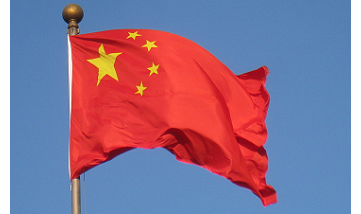The inland city of Chengdu in China's Sichuan province is betting big on biotech, announcing a plan last month for a RMB2 billion ($306 million) fund to attract startups, raising some observations on how the policy might play out in competition with other centers in China and nearby in Asia. 
China Daily highlighted that effort in a story about a CRO player in the biotech space who received funding at one of the industry parks set up in the city.
Li Jin, former global director of compound and computational sciences at AstraZeneca ($AZN), started a company called HitGen in 2012 that provides contract research on candidates that includes a partnership with U.K.-based Cyclofluidics on a small molecule oral glycogen synthase kinase 3 beta inhibitor candidate, according to the company's website.
Initially, Li was among a handful to venture into Chengdu's Tianfu Life Sciences Park, but according to China Daily there are now more than 200 biopharmaceutical companies at the site.
Cities and governments around Asia have tried to use money and other incentives to create biotech hubs--with mixed success in India, Singapore, South Korea, Malaysia, Japan, Australia and Taiwan. To be sure, small companies that get funding have helped to seed some growth in all of those countries--though not at the pace or depth of hubs in the U.S. like Boston.
In China, Shanghai, Shenzhen, Suzhou and Beijing official policy has pushed a rush to start life science parks that now approach 2,000 incubators nationwide with massive floor space housing research and manufacturing units as well as smaller support companies.
Several observers have suggested a sort of life sciences park bubble in the making--an effect seen in other officially sponsored growth ideas that in the industrial sphere are now leading to efforts to cull companies.
Biotech however fits in with current broad healthcare policy in China to develop and make drugs locally to curb costs to patients and the government as well as a sector that promises job growth if successful.
Some of these biotechs are started by so-called sea turtles--top scientific talent that has studied and worked abroad who take advantage of opportunities to return and run a gamut of life science innovation companies besides biotech, including medical devices or other research outside of drug discovery.
Chengdu's bid to attract talent stems from the 53 universities, 30 national-level research institutes and 76 provincial- and national-level laboratories, according to China Daily. "The West China Medical Center of Sichuan University and its many hospitals and research arms are the country's top medical schools and hospitals," the newspaper said in a lengthy feature article.
In addition to government-supported Tianfu Life Sciences Park, Chengdu has a sort of competitor in Tianhe Biotech Park, which offers finder fees for getting a tech project to setup in its site.
Not to be undone, the local government will provide as much as RMB50 million to any Nobel Prize laureates who land--and if they bring a big enough project, RMB100 million could be on the table, China Daily said.
As well, companies can get loans up to RMB10 billion for setting up headquarters in the city and if they list, they can also look forward to a financing loan of up to RMB5 million.
For his part, Li told China Daily that HitGen has 30 biotech drugs in the pipeline from preclinical leading up to expected investigational new drugs applications and is ready to expand--including a branch in Boston and maybe another one in Oxford or Cambridge, U.K.
- here's the story from China Daily